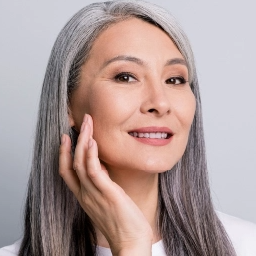Psoriasis is a chronic and inflammatory skin disease where your overactive immune system causes you to break out in rough, red, and scaly rashes. About eight million people in the United States have psoriasis.
Although there are many types of psoriasis, they all put you at risk for complications. A significant complication is psoriatic arthritis, which may deform your fingers and toes.
When you have psoriasis, you may worry you could pass it on to your children. Although psoriasis does run in families, genetics isn’t the only factor that puts your kids at risk.
At Dermatology Institute & Skin Care Center, our dermatologist, Paul Yamauchi, MD, PhD, diagnoses and treats psoriasis at our office in Santa Monica, California. We help you stay comfortable in your skin with therapies and flare-up prevention strategies.
If you have psoriasis, will your children have it, too? The answers are below.
Psoriasis runs in families.
Studies confirm what clinicians have long noted: You’re more likely to have psoriasis if a first-degree relative, such as a parent, has it. However, your genes are never your destiny, and that’s true for psoriasis.
In addition to genetic factors, the disease requires environmental triggers. Although more than 20% of people with psoriasis have a first- or second-degree relative with it, that also means that about 80% do not.
Remember, environmental conditions play a role. These include:
- Stress
- Cold weather
- Dry weather
- HIV infection or other types of infections
You’re also more likely to develop psoriasis if you use certain medications, including lithium, antimalarials, and beta blockers.
You can pass psoriasis to your kids
Because genetics is just one factor involved in psoriasis and because multiple genes may contribute to the disease, your children won’t necessarily inherit it from you. If only you have psoriasis, each child only has a 15% risk of developing the disease.
However, if both parents have psoriasis, the child has a 75% risk of developing it. If neither parent has psoriasis but a sibling has it, another child has a 20% risk for psoriasis.
Genes may lead to therapy
The good news is that the genes influencing psoriasis may also hold the answer for treatment or a cure.
To date, more than 80 locations on genes have been identified for targeted therapies. Once we have a more in-depth understanding of how your genetic makeup factors into your psoriasis, we may be able to develop customized treatments or predict your response to current therapies.
In fact, medications that factor the genetic factors in psoriasis are already in development. Some have reached the clinical testing stage.
However, lifestyle factors are still essential for predicting psoriasis risk. Controlling them can prevent flares. Minimize stress, quit tobacco, and adopt healthy habits such as a whole-foods diet and plenty of exercise.
If you’re in the middle of the flare-up or suspect your child has psoriasis, phone our friendly staff today for treatment. You can also send us a message online to schedule an appointment.











